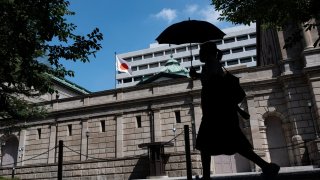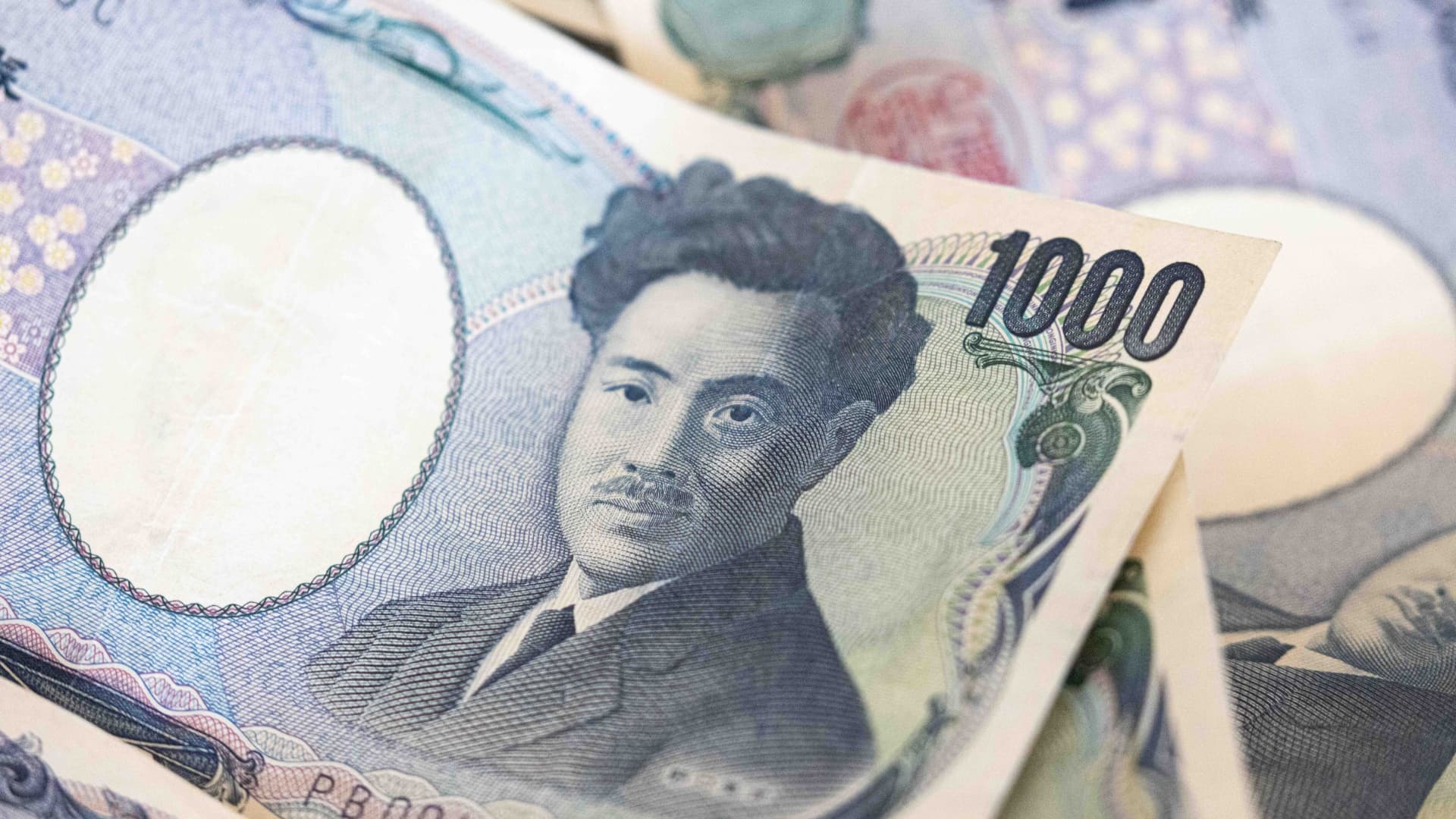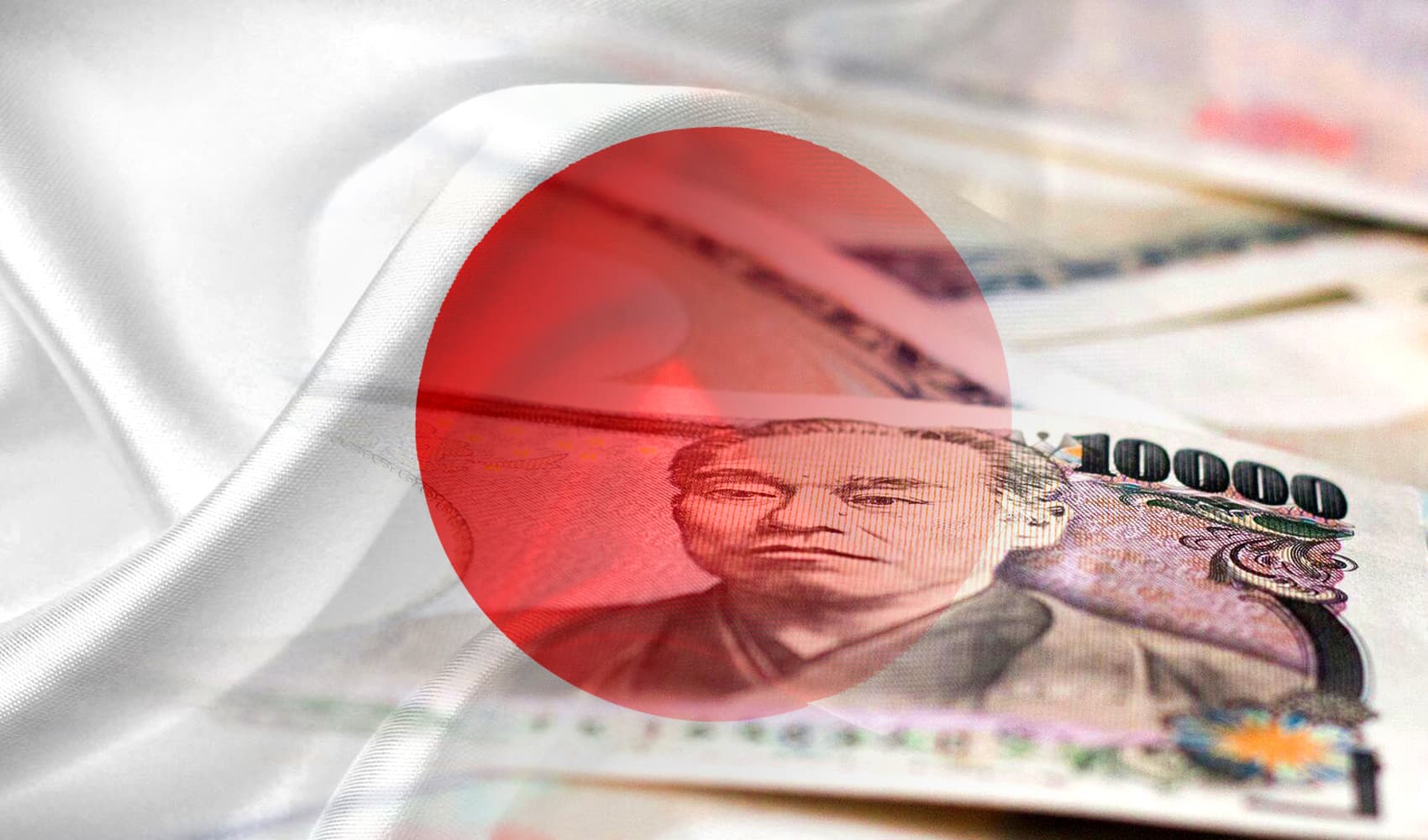
This is CNBC's live blog covering Asia-Pacific markets.
Japan's Nikkei 225 index closed more than 1% higher Tuesday after the country's central bank left the main policy rate unchanged at its final meeting of the year.
The Bank of Japan made no change to its negative interest rate policy, holding the benchmark interest rate at -0.1%. The central bank also kept its stance on its yield curve control policy unchanged.
The central bank also warned of "extremely high uncertainties" affecting Japan's economy, saying that core inflation will stay above 2% throughout fiscal 2024.
Get Tri-state area news and weather forecasts to your inbox. Sign up for NBC New York newsletters.
The yen weakened 0.6% against the dollar to 143.70 after the decision. The Nikkei 225 closed 1.41% higher at 33,219.39, while the Topix closed up 0.73% at 2,333.81.
"We maintain our call that the BoJ will abolish the NIRP (negative interest rate policy) at the April meeting next year after confirming a robust spring wage settlement," Shigeto Nagai, head of Japan Economics at Oxford Economics, wrote in a client note.
"After ending the NIRP, however, our inflation projection anticipates the BoJ maintaining an effective zero-interest rate policy for a few years."
Money Report
Separately, the Reserve Bank of Australia' minutes revealed the Australian central bank deliberated on whether to raise rates by 25 basis points or leave them unchanged, with the board members eventually deciding to hold rates at 4.35%.
In Australia, the S&P/ASX 200 rose closed 0.84% at 7,489.10, resuming its climb after the index snapped a six-day winning streak on Monday.
South Korea's Kospi closed flat at 2,568.55, while the small-cap Kosdaq gained 0.86% at 858.30 after hitting its highest level since Sept. 22 on Monday.
Hong Kong's Hang Seng index fell 0.76% in the final hour of trading, while mainland China's CSI 300 closed up 0.14% at 3,334.04.
Overnight in the U.S., the S&P 500 and the Nasdaq Composite advanced 0.45% and 0.61% respectively, while the Dow Jones Industrial Average was flat.
The S&P 500 is now 1.2% away from its all-time closing high at 4,796.56 that was reached in January 2022.
— CNBC's Sarah Min and Hakyung Kim contributed to this report
Bank of Japan sticks to super easy monetary policy, Ueda to meet the press
Japan's central bank left its ultra-loose monetary policy unchanged at its final policy meeting this year in light of "extremely high uncertainties," setting the stage for any long-awaited unwinding in the new year.
The Bank of Japan voted unanimously to hold interest rates at -0.1%, and stuck to its yield curve policy that references the 1% upper bound for 10-year Japanese government bonds as its limit.
The Japanese yen reversed gains after the BOJ decision and traded at about 143.5 against the greenback in midday trade. Yields on the 10-year Japanese government bonds were largely unchanged.
Central bank governor Kazuo Ueda is due to meet the press in Tokyo later Tuesday, where he may offer forward guidance on the BOJ's future path of action.
For more, please read the full story.
— Clement Tan
Australia central bank considered hiking in December, but paused due to limited data: Minutes
The Reserve Bank of Australia considered hiking rates by 25 basis points in December, but eventually decided to hold rates at 4.35%, minutes from the central bank showed.
The RBA said the case for raising rates was tied to expectations that inflation would remain above its 2% target for a prolonged period, and that there were risks this period could be extended.
Furthermore, underlying inflation was noted to be higher in Australia than in several other countries.
On the other hand, the RBA's case for holding rates was due to weak consumption demand growth, with members also noting that the pace of disinflation in some other countries over recent months had accelerated. "If emulated in Australia, this would be helpful in bringing inflation back to target."
— Lim Hui Jie
Nippon Steel plunges nearly 6% after deal to buy US Steel
Japan's Nippon Steel fell 5.8% to 3,052 yen in the first hour of trading after it agreed to buy U.S. Steel for $14.9 billion in cash late Monday.
Nippon Steel is buying U.S. Steel for $55 per share, representing a nearly 40% premium from U.S. Steel's last closing price of $39.33 on Friday.
The acquisition of U.S. Steel will allow Nippon Steel to move toward 100 million metric tons of global crude steel capacity.
The Nikkei 225 index was flat, while the broader Topix was 0.3% lower as investors awaited the Bank of Japan's decision on interest rates later in the day.
— Shreyashi Sanyal
Yen strengthens for third straight day ahead of Bank of Japan rate decision

The Japanese yen strengthened against the dollar, trading within the 142 range. It is up for a third straight day.
Investors are gearing up for the Bank of Japan's final rate decision of the year, where the central bank is expected to stick with its negative interest rate policy, according to a Reuters poll of economists.
The BOJ's stance on its yield curve control policy will also be closely watched.
"There is no immediate urgency for the Bank of Japan (BOJ) to change its accommodative stance, but our base‑case scenario is that it will terminate the current negative interest rate policy in April 2024 to coincide with the annual wage negotiations," Aadish Kumar, international economist at T. Rowe Price wrote in a client note.
"The other key decision facing the Bank of Japan is when—and how—to remove its yield curve control (YCC) policy. While this could happen as early as December this year, the YCC policy has already been gradually winding down, with the parameters of the 10-year yield cap being loosened toward the point of becoming irrelevant," Kumar added.
Japan's Nikkei 225 was headed for a flat open, with the futures contract in Chicago at 32,810 and its counterpart in Osaka at 32,740 against the index's last close of 32,758.98.
— Shreyashi Sanyal
CNBC Pro: Morgan Stanley prefers 'boring' non-AI tech stocks for 2024. Here are its top global picks
Non-artificial intelligence tech stocks that have struggled in 2023 have significant upside potential in 2024, according to Morgan Stanley.
The investment bank's tech analysts say that while AI and cloud computing stocks will likely continue to grow, their valuations are very high.
The Wall Street bank named its 14 "most preferred" stocks that have "re-rating potential around pricing/growth, early cycle and idiosyncratic earnings upside."
CNBC Pro subscribers can read more here.
— Ganesh Rao
CNBC Pro: Bank of America reveals its 4 biotech top picks for 2024 — and gives one 166% upside
Bank of America has named four small and medium-sized pharmaceutical stocks as its "top picks" for 2024, highlighting their strong potential for regulatory approvals and product launches over the next year.
The Wall Street bank noted it remains "cautiously selective" in its biotech picks as the sector as a whole has underperformed the broader stock market in 2023.
Meanwhile, the biotech stock with the BofA's biggest upside potential already has approval for a drug that treats a rare kidney disease affecting up to 150,000 people in the U.S.
CNBC Pro subscribers can read more here.
— Ganesh Rao
Oil settles higher on Red Sea shipping disruption
Oil prices rose more than 1% on Monday as attacks on vessels in the Red Sea create shipping disruptions.
The West Texas Intermediate contract for January rose $1.04, or 1.46%, to settle at $72.47 a barrel. The Brent contract for February gained $1.40, or 1.83%, to settle at $77.95 a barrel.
BP announced on Monday that it was pausing shipping through the Suez Canal in response to attacks by militants in Yemen on vessels in the Red Sea.
— Spencer Kimball
Fed's Goolsbee says he was 'confused' by market reaction
Chicago Fed President Austan Goolsbee said on CNBC's "Squawk Box" that the market may have misinterpreted the central bank's update from last week, when the Dow jumped to a record high.
"It's not what you say, or what the chair says. It's what did they hear, and what did they want to hear," Goolsbee said. "I was confused a bit — was the market just imputing, here's what we want them to be saying?"
The Fed president also pushed back against the idea that the Fed is actively planning on a series of rate cuts.
"We don't debate specific policies, speculatively, about the future. We vote on that meeting," he said.
— Jesse Pound
Real estate, utilities underperform the S&P 500
Real estate and utilities underperformed on Monday. The sectors were the only two trading in negative territory. Real estate was down by 0.8%, while utilities declined 0.6%.
Kimco Realty and Boston Properties were lower by more than 1%, each. Prologis was off by 1.2%.
Exelon shares dropped by 3%, while PG&E declined more than 2%. Pinnacle West Capital fell by 1.5%.
— Sarah Min
Tech stocks could face steeper pressure in 2024, Bernstein says
Tech stocks could face a larger wave of pressure in 2024, according to Bernstein senior research analyst Toni Sacconaghi.
"We struggle to recommend an overweight in tech for 2024," the analyst wrote in a Monday note. "Tech has outperformed by 2500+ bps twice in the last 20 years (2009 and 2020) and both times subsequent next year performance was in line with the broader market."
Sacconaghi said that while the firm finds it difficult to remain overweight on tech stocks, Bernstein is stopping short of moving to an underweight rating due to strong momentum, falling interest rates as well as the overall outperformance of the sector which makes it "statistically tough (and economically punitive) to actively 'bet against' tech."
— Brian Evans






